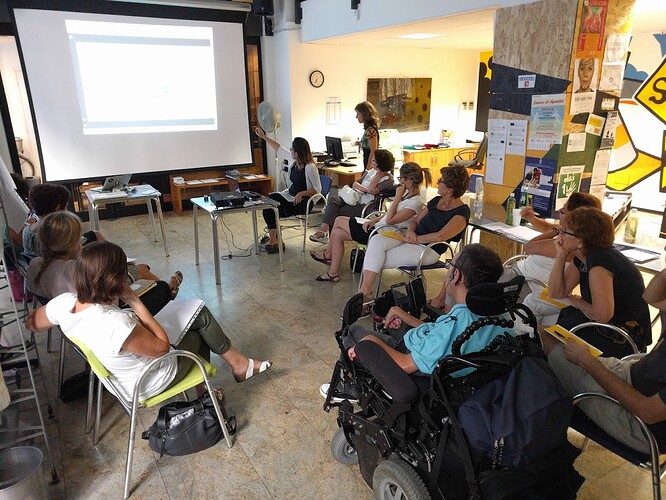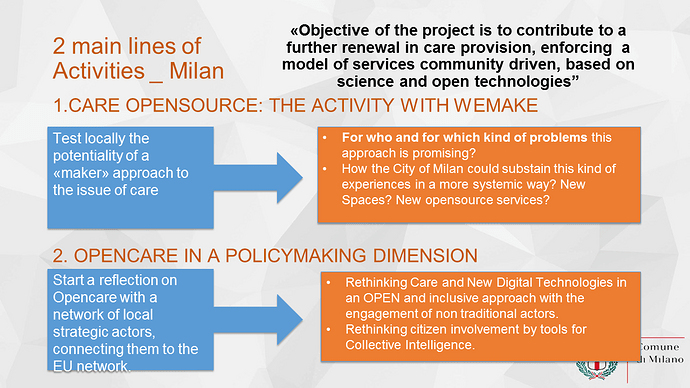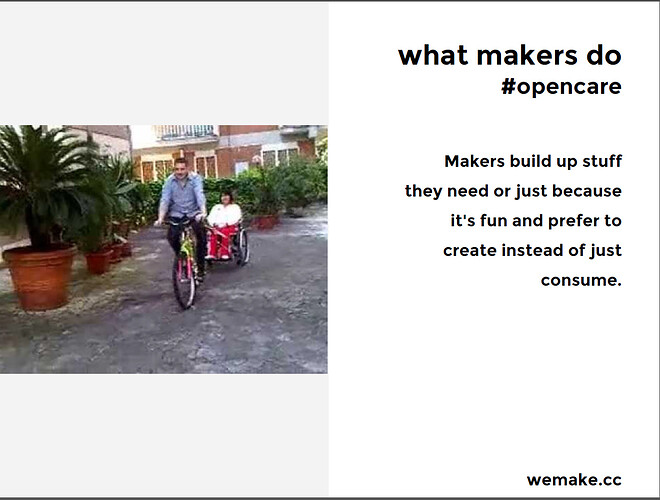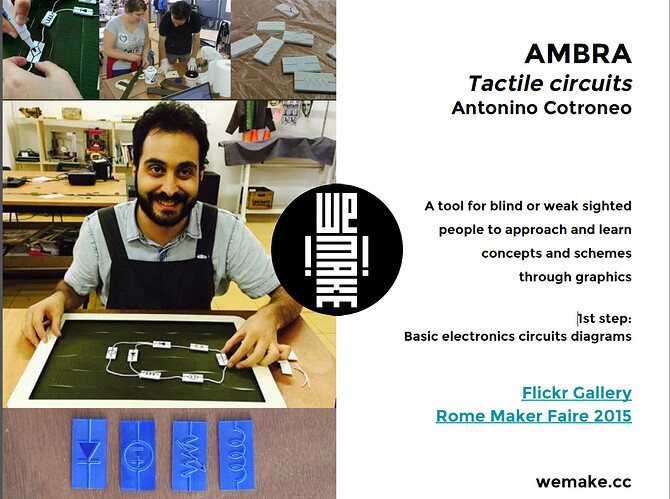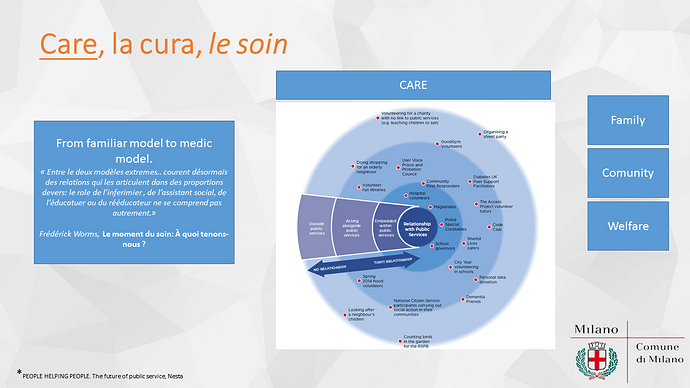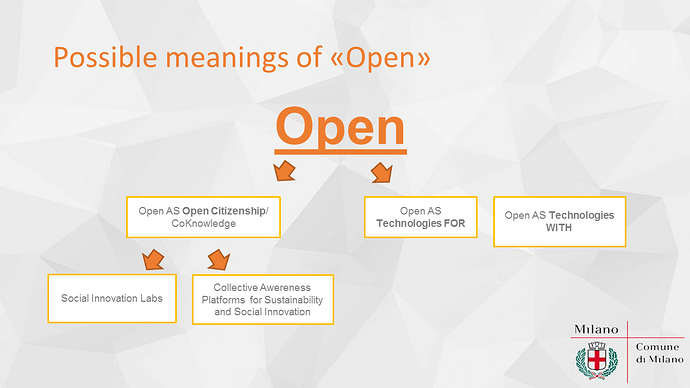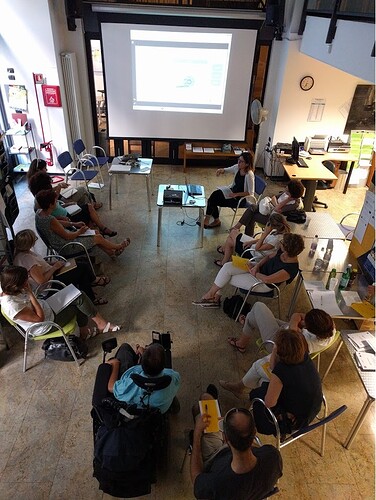July, 20th 2016
6 p.m. – 8.00 p.m
Smart City Office, Comune di Milano
A meeting to present Opencare and to create a local working group composed by different actors that are in different ways engaged in the “Care System”.
Partecipants
- Rossana Torri, Smart City Office, City of Milan
- Franca Locati, Smart City Office, City of Milan
- Costantino Bongiorno. WeMake
- Antonia Madella Noja, Foundation Togheter to Go, (for rare diseases)
- Cristina Dornini . Foundation Togheter to Go
- Monica Napoli, Project Manager, Cooperativa Farsi Prossimo (Cooperative with social services for migrants, vulnerable people)
- Emanuela Losito, Proiects Officer, Social policies, City of Milan
- Gabriella Rodano, Services for people with disabilities, City of Milan
- Monica Montingelli, Services for people with disabilities, City of Milan
- Marco Rasconi, Ledha Milano, Association for rights of people with disabilities
- Lara Luppi, Spazio Aperto Servizi, Social Enterprise, Services for people with socio-economic problems
- Lucia Pigini, Don Gnocchi Foundation, Research Activity on biomedical and biotechnological sector, Social and Health Services for disable people, children, old people, terminally ill people.
- Sara Honegger, Asnada School, Experimental school of Italian Language.
- Enrico Bassi, Opendot, Makerspace in Milan
Some of our Questions:
- What does it mean “Open+Care”?
- How could we, as Public Administration, think again our idea of care and a new model of welfare?
@Rossana presents the OpenCare Project, in particular she stresses
- the intention of the City of Milan to re-think services and its role as a provider of services in an OPEN perspective.
- the first experience of co-design realized with WeMake and some citizens. This is for us an interesting example about what does it mean think again, with new actors, the system of care. Rossana underlines the importance of the process/method more than of the results (particular objects created).
After 6 months of the project, we can speak about 2 main lines of work:
**We paste here only some slides. If you are interested, we can send you the full version.
@Costantino presents WeMake, the Fablab, but also presents some interesting examples of maker’s approach to Care. He underlines the main aim of the project: which ingredients are key elements that can facilitate this approach? How could we make this approach more inclusive?
Some examples of makers approach.
@Franca presents a reflection about the two concepts of “Care” and “Open”, with some examples. The idea is to share a common language and a conceptual framework from where we starts our research/work together.
We write here some notes about the discussion started after our presentations… only notes, but we hope to go deeper in the next meetings…
@Lucia Pigini, Fondazione Don Gnocchi, says that they’re working a lot with technologies but in order to develop best products that now are not available on the market. Some prototypes that we will develop in Opencare project, that we’re speaking about, are already available on the market: so which is the sense to recreate it? Which is the added value?
@Antonia Madella Noja, Foundation Togheter to go, says that from her point of view the real problem when you think products for people with rare disease is a problem of scalability. There is the need to spread out products; we don’t have time to wait the creation of a single well customized spoon!
@Gabriella Rodano, Services for people with disabilities, City of Milan, says that she cannot see very well the link between Opencare Project and this approach to her daily job.
@Monica Napoli, Cooperativa Farsi Prossimo, she says that it’s really interesting for her to be here and the approach proposed could be useful to enforce skills of vulnerable people for an effective social and economic inclusion.
@Emanuela Losito, Projects Officer, Social Politics, City of Milan, she is the Project Manager of Welfare di Tutti, a strong initiative made by City of Milan to manage social services, in particular domiciliary services, in a different way (community driven services). She thinks that it is important to think again the role of Public Administration. She sees two possible roles: 1. Community Facilitator for communities that already exist; 2. Promoter of a direct relation with citizens, in particular users of our services.
